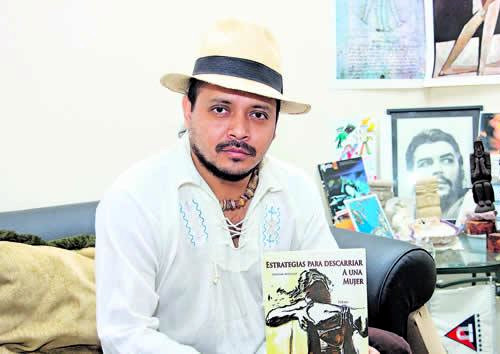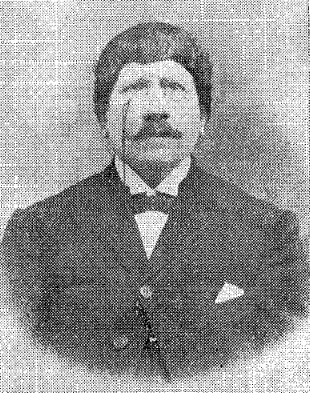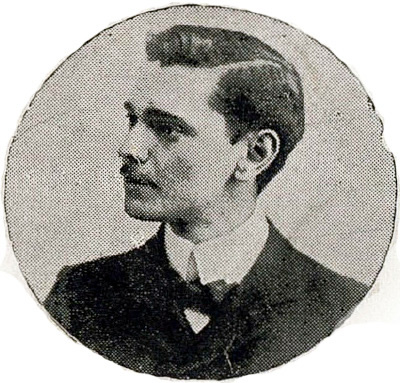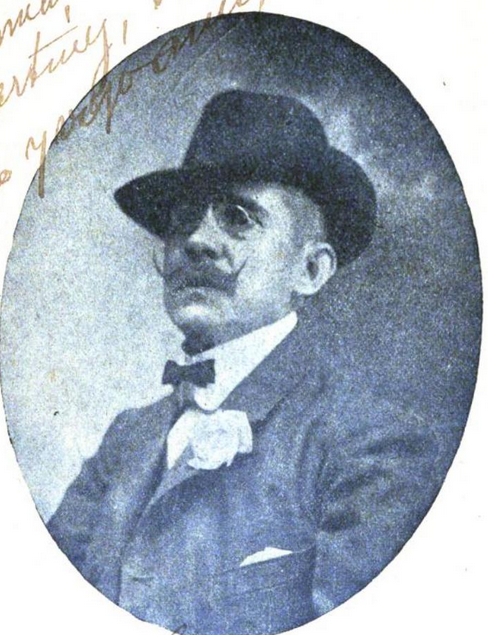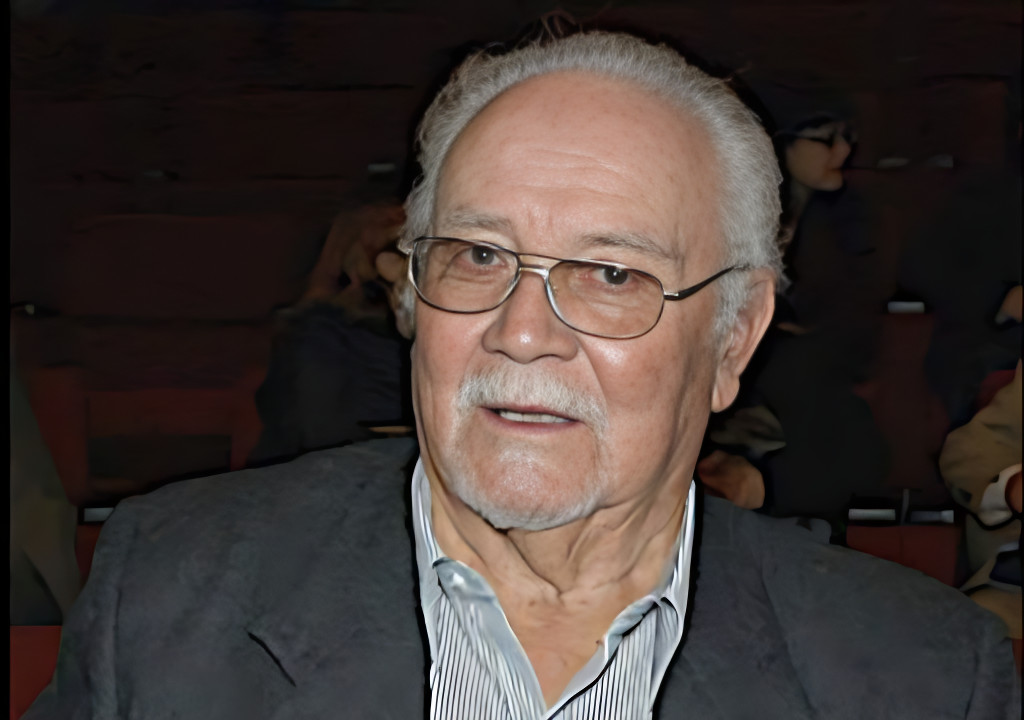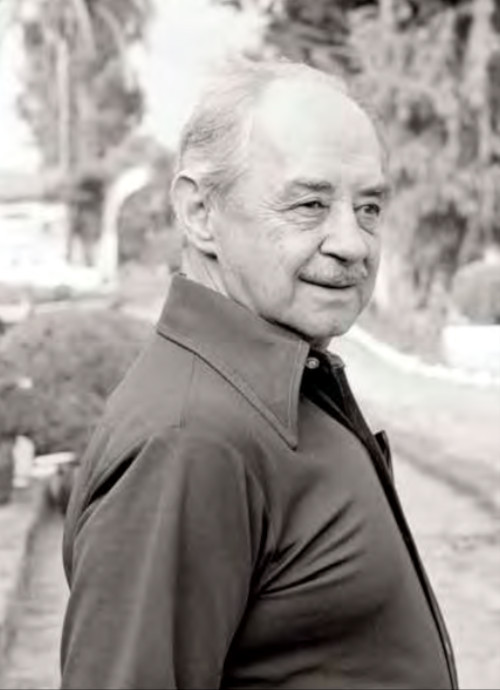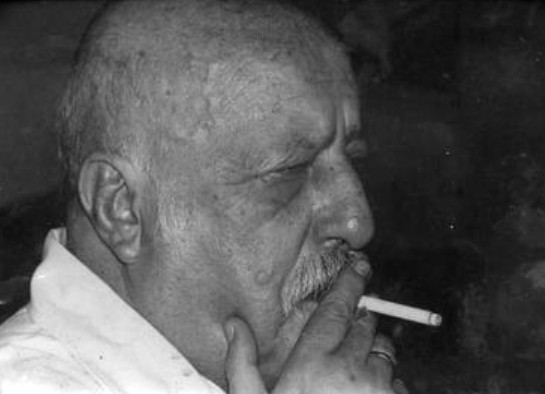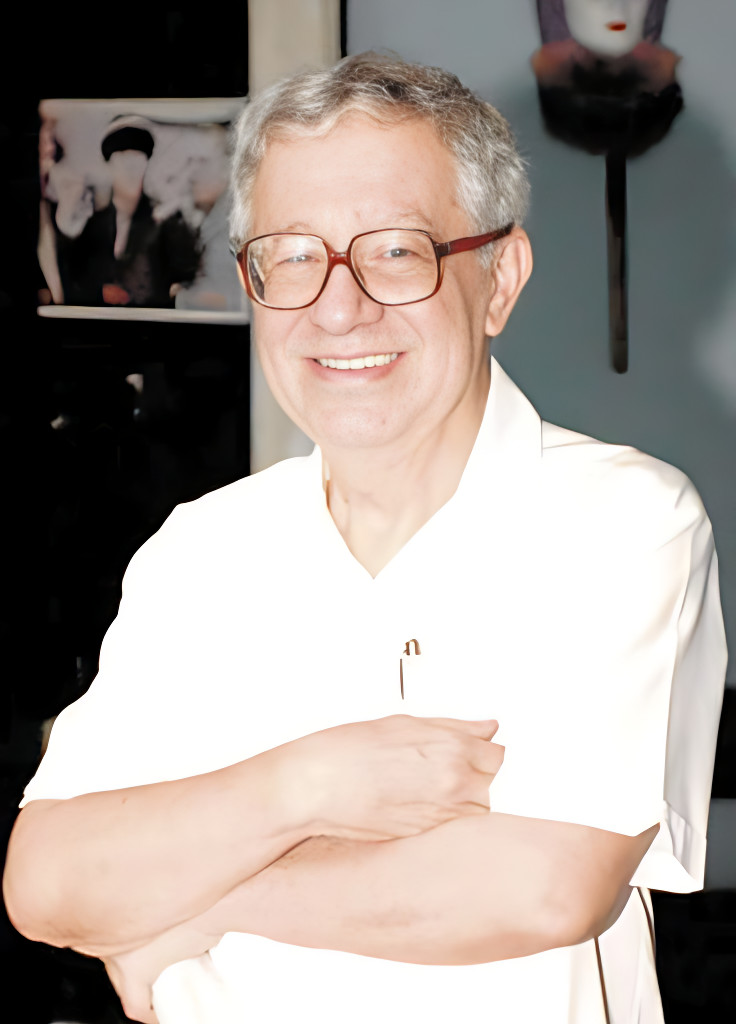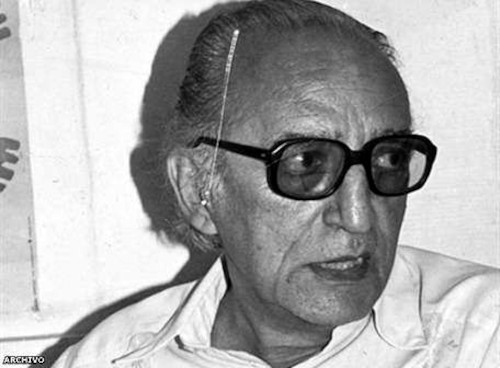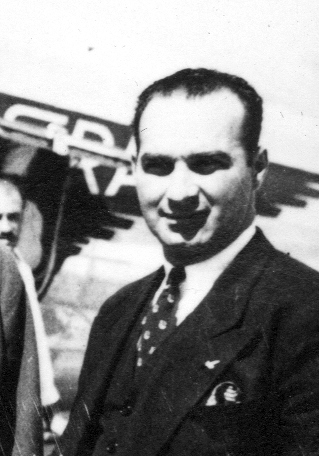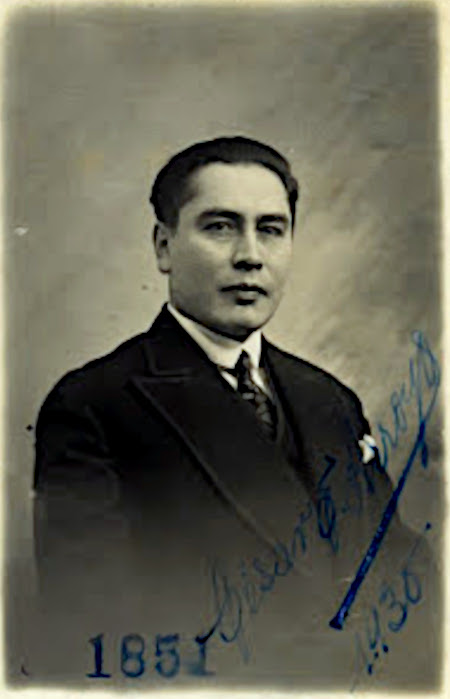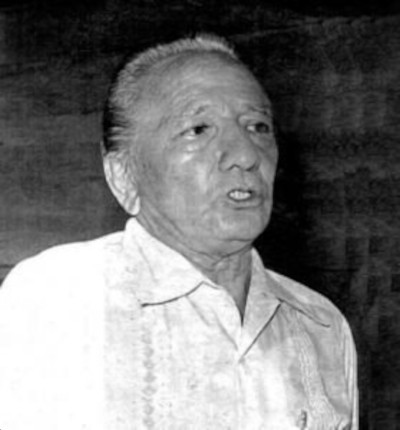Ricardo Descalzi del Castillo (Riobamba, September 22, 1912 – Riobamba, November 29, 1990) was an Ecuadorian novelist, historian, playwright, short story writer, translator, literary critic, university professor and medical doctor. In 1928, he founded the magazine Surcos with his Mejía National Institute classmates José Alfredo Llerena and Arturo Meneses. After graduating from high school in 1932, he published “Ghismondo,” a 100-page novel based on his experiences as a student. He also wrote the novel “Saloya” (1962), a short story collection “Los murmullos de Dios” (1959), and the stage plays “Los Caminos Blancos” (1939), “En el horizonte se alzó la niebla” (1961), and “El huasipungo de Andrés Chiliquinga” (1981). His six-volume “Historia crítica del teatro ecuatoriano” is perhaps his most important work (1968). Among his translations is “Poemas” (1969), a French-to-Spanish translation of poems by Nobel laureate Jean Poilvet Le Guenn. The Tobar Prize was bestowed upon him by the municipality of Quito in 1968. He was a member of the House of Ecuadorian Culture, the National Academy of History, and the Bolivarian Society of Quito, where he served as its vice president.
Continue reading “Ricardo Descalzi”Category: Playwrights
Cristian Avecillas
Cristian Avecillas Sigüenzas (Quito, 1977) is an Ecuadorian poet, essayist, playwright, actor, singer and songwriter. He directed the cultural magazine CAMINARTE of the El Telégrafo radio. In 2008 his poetry book “Todos los cadáveres soy yo” received honorable mention at the Casa de las Américas literary prize competition (Cuba). That same year his poetry book “Ecce Homo II” won the César Dávila Andrade National Poetry Prize. He also wrote a book-length biographical study on Edmundo Ribadeneira. His first play Funeraria Travel (2009) won the Latin American Dramaturgy Award (Argentina). It had its debut in 2009 in La Plata, Argentina, and has been performed at theater festivals in Perú, Venezuela, Uruguay and Ecuador.
Continue reading “Cristian Avecillas”Juan Eusebio Molestina
Juan Eusebio Molestina Matheus (Guayaquil, 1850 – ?) was an Ecuadorian poet and playwright known for his poetic dramas. His dramatic career crossed the year 1895, which marked the end of romanticism and the beginning of modernism in Ecuador. Molestina’s play Espinas y abrojos (Thistles and Thorns), performed in Guayaquil in 1898, exemplifies the theater known as criollista and is considered a precursor of realist and social theater. While the exact date of his death remains unknown, records indicate that he continued working at the Customs House in Guayaquil until at least 1922.
Continue reading “Juan Eusebio Molestina”Emilio Gallegos del Campo
Emilio Gallegos del Campo (Guayaquil, September 20, 1875 – May 15, 1914) was a poet, playwright, journalist and diplomat. In 1898 General Eloy Alfaro, who was a friend of his family and called him “Emilito,” appointed him Consul of Ecuador in London, a post which he held until 1901. In Europe, he was decorated by the French government with the Legion of Honor. Together with his brother, he founded several newspapers, including “América Modernista,” which published poets of the modernismo movement. His brother was the poet Joaquín Gallegos Del Campo whose son was the celebrated novelist Joaquin Gallegos Lara.
Continue reading “Emilio Gallegos del Campo”Nicolás Augusto González
Nicolás Augusto González Tola, also N.A. González (Guayaquil, April 14, 1858 – Buenos Aires, Argentina, January 18, 1918) was an Ecuadorian writer, playwright, novelist, journalist, poet, historian and diplomat. His plays in verse are among his best known works, which include, “Hojas secas,” “Entre el amor y el honor,” and “Amor y Patria,” which he co-wrote with Alfredo Baquerizo Moreno (President of Ecuador from 1916-1920). “Cuestión Histórica, el Asesinato del Gran Mariscal Ayacucho,” (written between 1887 and 1889), is perhaps his most important and controversial work, in which he accuses General Juan José Flores of being behind the assassination of Antonio José de Sucre, prompting hatred and persecution from Flores’ son Antonio Flores Jijón (President of Ecuador from 1888-1892). Due to his political views and polemic writing he was exiled to other countries, such as Peru, Colombia, Guatemala and Spain. From 1908-1913 he lived in Spain as a diplomat, and published there his poetry book, “Humo y cenizas” (1908) and his novel “La Llaga” (1908). He returned to Guayaquil in 1917 where a special committee chaired by José Luis Tamayo (President of Ecuador from 1920-1924) awarded him the “Golden Lyre”.
Continue reading “Nicolás Augusto González”Miguel Ángel Granado Guarnizo
Miguel Ángel Granado Guarnizo (Guayaquil, 1895 – Guayaquil, 1955) was an Ecuadorian modernist poet, playwright, and literary critic. He began publishing poetry and literary critiques as early as 1912 and was a key figure in Ecuador’s early 20th-century literary scene, co-founding the influential El Telégrafo Literario (1913). He is best known for his play El Hermano Cándido (1919), his biographical and critical work Fisonomías (1914), and his collection of critical essays Horas de Luz (1917). Granado Guarnizo was part of a close-knit literary circle that included his friend, the poet Medardo Ángel Silva. His career was tragically cut short in 1926 when he was diagnosed with a mental illness, leading to his long-term institutionalization until his death. He was the brother of the poet Carlos F. Granado Guarnizo.
Continue reading “Miguel Ángel Granado Guarnizo”Alfonso Murriagui
Alfonso Murriagui Valverde (Quito, 1929-January 19, 2017) was an Ecuadorian poet, fiction writer, dramatist, journalist, and an exponent of communism. Murriagui‘s poetry is marked by political and revolutionary ideology. For several years he was an editor of En Marcha, the official weekly periodical of the Central Committee of the Communist Marxist Leninist Party of Ecuador. In 1961 he was a founding member of the Tzántzico group of the 1960s. That same year he began writing for Pucuna magazine. In 1965 he became vice president of the Association of Young Writers of Ecuador. He was the director of public relations of the Luís Vargas Torres de Esmeraldas Technical University from 1972-1976. He was the director of cultural diffusion of the Philosophy Department of the Central University of Ecuador from 1985-1992). During the last 15 years of his life he was the editor of the culture section of the leftist weekly periodical Opción.
Continue reading “Alfonso Murriagui”Raúl Andrade Moscoso
Raúl Andrade Moscoso (Quito, October 4, 1905 – Quito, September 10, 1983) was an Ecuadorian journalist and dramatist. As a journalist, Andrade travelered throughout Mexico and Colombia, where he worked for the newspaper El Tiempo (Bogota, Colombia), and published his book “La internacional negra en Colombia,” a collection of articles on the crisis in Colombia. He was also the editor of El Comercio from 1954-1982. As a dramatist, Andrade published “Suburbio,” a romantic evocation on the suburbs of Quito. In 1983 the president of Ecuador conferred on Andrade the Eugenio Espejo Prize in Culture.
Continue reading “Raúl Andrade Moscoso”Francisco Tobar García
Francisco Tobar García (Quito, November 3, 1928 – Quito, February 1, 1997) was an Ecuadorian poet, playwright, novelist, essayist, journalist, literary critic, diplomat, and university professor. He earned a Ph.D. in Literature from the Pontifical Catholic University of Ecuador and held teaching positions at universities such as La Plata in Argentina, the Sorbonne in Paris, and Complutense in Madrid. He revitalized Ecuadorian theater with his plays and published several notable works of poetry and fiction, including Pares o nones and Autobiografía admirable de mi tía Eduviges, which critics consider his masterpiece. He also served as a diplomat in Spain, Haiti, and Venezuela.
Continue reading “Francisco Tobar García”José Martínez Queirolo
José Miguel Martínez Queirolo (Guayaquil, March 22, 1931 – Guayaquil, October 8, 2008) was an Ecuadorian playwright and writer. He was awarded the national theater award on four occasions for his plays, La casa del qué dirán (1962), Los unos vs. Los otros (1968), La dama meona (1976) and La conquista no ha terminado todavía (1983). He was the 2001 recipient of the Eugenio Espejo Award in Literature, awarded to him by Ecuador’s president.
Continue reading “José Martínez Queirolo”Simón Corral
Simón Corral (Quito, January 5, 1946) is an Ecuadorian poet and dramatist. He studied sociology at the Central University of Ecuador, and was the president of the Federation of University Students of Ecuador. He was later a professor at the Central University of Ecuador.
Continue reading “Simón Corral”Hugo Salazar Tamariz
Hugo Salazar Tamariz (Cuenca, September 2, 1923 – Guayaquil, January 31, 1999) was a poet, novelist, playwright and actor. After traveling extensively throughout America, Europe, Asia and Africa, he moved to Guayaquil in 1940 where he lived most of his life and taught literature and drama at the university. He wrote several novels and books of short stories. In 1968 he published 3 plays in one volume entitled “Teatro,” which included “La falsa muerte de un ciclista,” “Toque de queda,” and “Por un plato de arroz.” In 2008, a complete collection of his poems was published posthumously under the eponymous title “Hugo Salazar Tamariz: poesía completa.“
Continue reading “Hugo Salazar Tamariz”Enrique Avellán Ferrés
Enrique Avellán Ferrés (Guayaquil, December 11, 1904 – Quito, 1984) was a distinguished Ecuadorian novelist, playwright, and legal scholar, celebrated for his contributions to both the literary and legal fields. Author of the compelling novel “La enorme pasión,” the critically acclaimed three-act play “Como los árboles” (1927), and the innovative musical fantasy “La rebelión del museo” (1969), Avellán Ferrés carved out a unique space in Ecuadorian culture. After earning a degree in social and political sciences from the University of Guayaquil, he went on to achieve notable success, including winning literary prizes and playing a pivotal role in copyright law advocacy, further establishing his legacy as a multifaceted intellectual force in Ecuador.
Continue reading “Enrique Avellán Ferrés”César E. Arroyo
César E. Arroyo (Quito, 1887 – Cádiz, 1937) was an Ecuadorian poet, novelist, journalist, playwright and diplomat. He was Ecuador’s Consul in Vigo from 1912 to 1916, and Ecuador’s Consul in Madrid from 1917 to 1919. He later served as Consul in Santander and Cadiz. He co-founded the Madrid-based magazine Cervantes (1913-1921) with the Spanish poet Francisco Villaespesa.
Continue reading “César E. Arroyo”Pedro Jorge Vera
Pedro Jorge Vera (Guayaquil, June 16, 1914 – Guayaquil, March 5, 1999) was an Ecuadorian journalist, novelist, short story writer, playwright, poet, university professor, and a politician from the Communist Party of Ecuador. He published and contributed to several controversial newspapers and magazines, such as “La Calle”, with the writer Alejandro Carrión, and “La Mañana”. He remained throughout his life a close friend of Cuban president Fidel Castro. Vera was the paternal uncle of Prima Ballerina Noralma Vera Arrata.
Continue reading “Pedro Jorge Vera”

